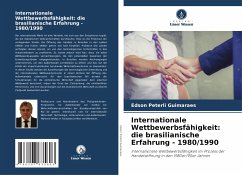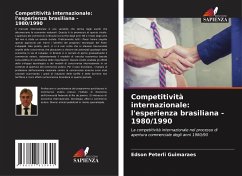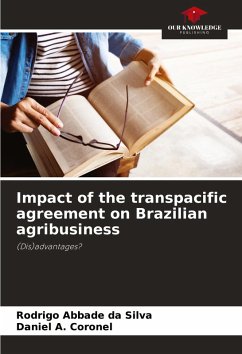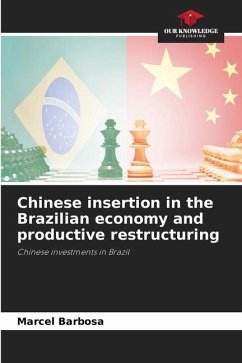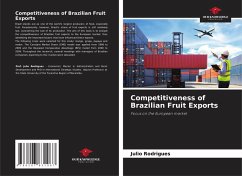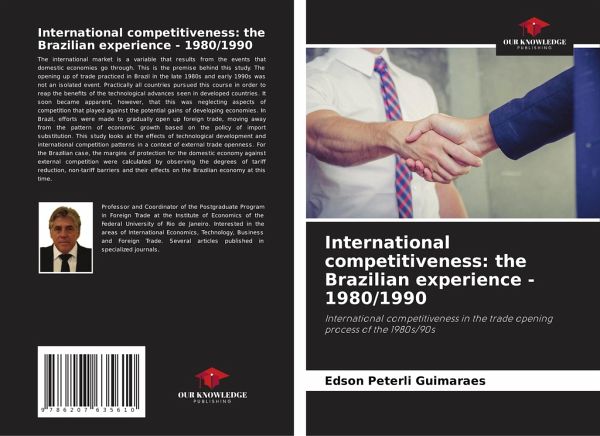
International competitiveness: the Brazilian experience - 1980/1990
International competitiveness in the trade opening process of the 1980s/90s
Versandkostenfrei!
Versandfertig in 6-10 Tagen
33,99 €
inkl. MwSt.

PAYBACK Punkte
17 °P sammeln!
The international market is a variable that results from the events that domestic economies go through. This is the premise behind this study. The opening up of trade practiced in Brazil in the late 1980s and early 1990s was not an isolated event. Practically all countries pursued this course in order to reap the benefits of the technological advances seen in developed countries. It soon became apparent, however, that this was neglecting aspects of competition that played against the potential gains of developing economies. In Brazil, efforts were made to gradually open up foreign trade, movin...
The international market is a variable that results from the events that domestic economies go through. This is the premise behind this study. The opening up of trade practiced in Brazil in the late 1980s and early 1990s was not an isolated event. Practically all countries pursued this course in order to reap the benefits of the technological advances seen in developed countries. It soon became apparent, however, that this was neglecting aspects of competition that played against the potential gains of developing economies. In Brazil, efforts were made to gradually open up foreign trade, moving away from the pattern of economic growth based on the policy of import substitution. This study looks at the effects of technological development and international competition patterns in a context of external trade openness. For the Brazilian case, the margins of protection for the domestic economy against external competition were calculated by observing the degrees of tariff reduction, non-tariff barriers and their effects on the Brazilian economy at this time.






